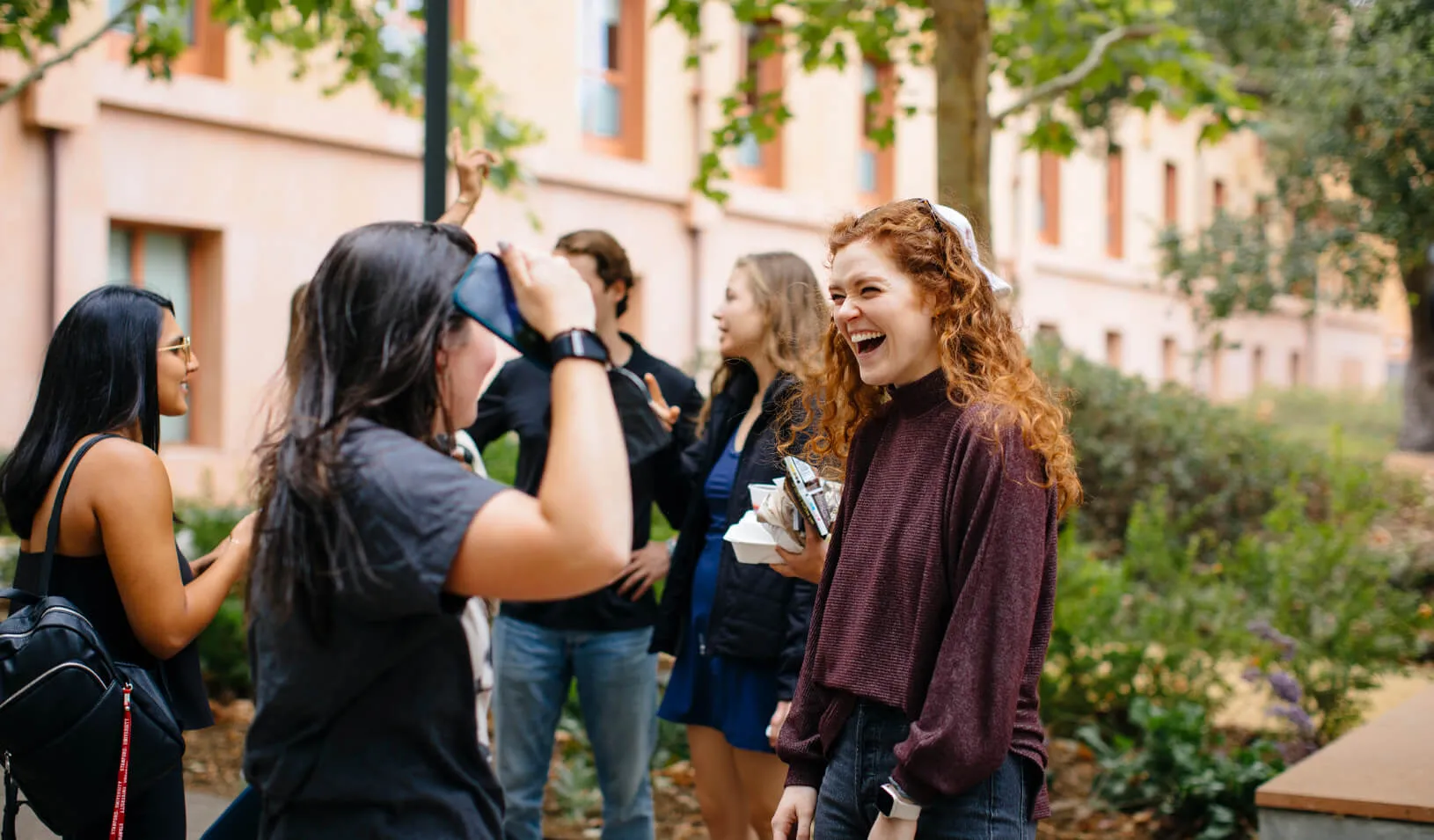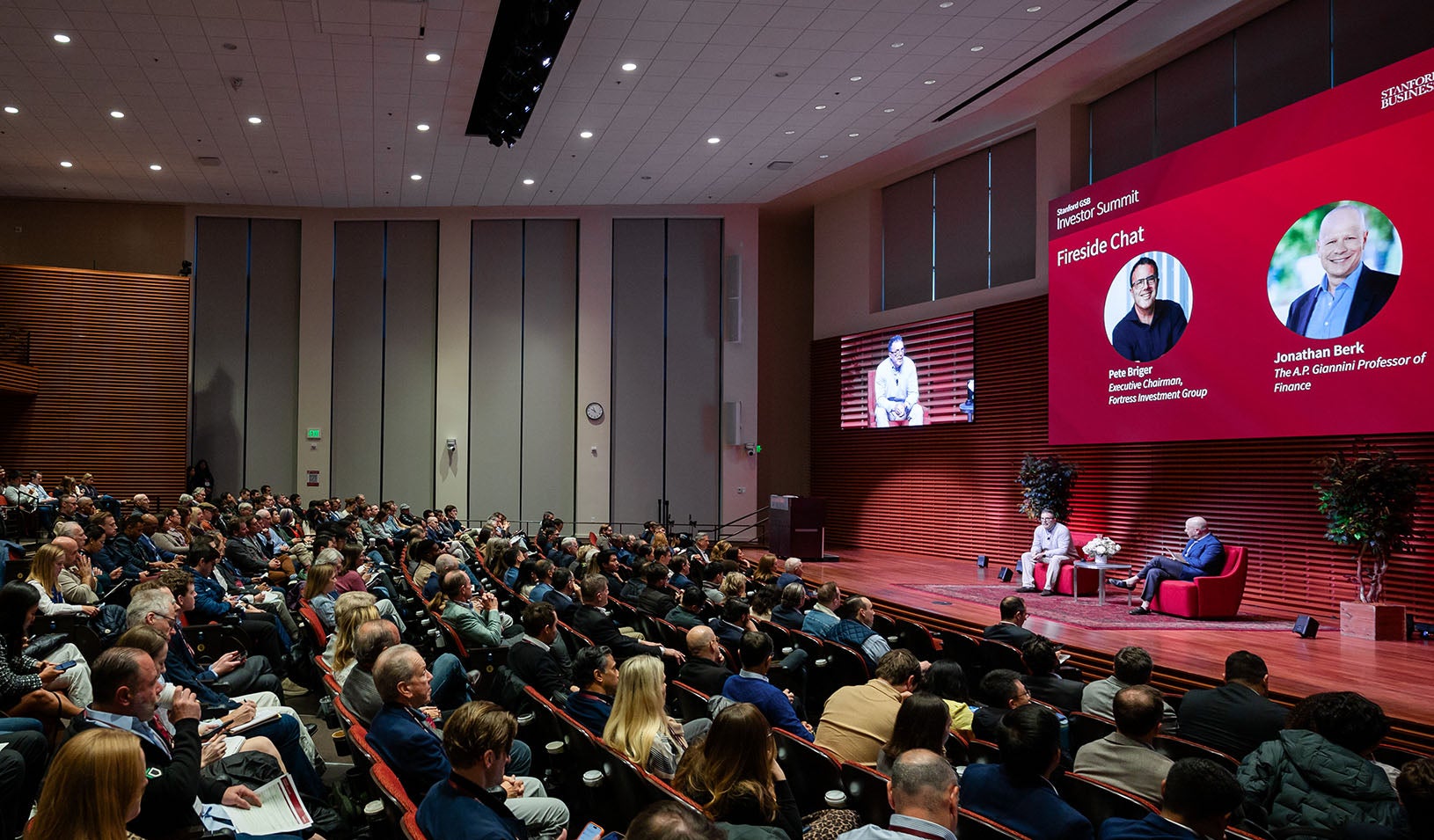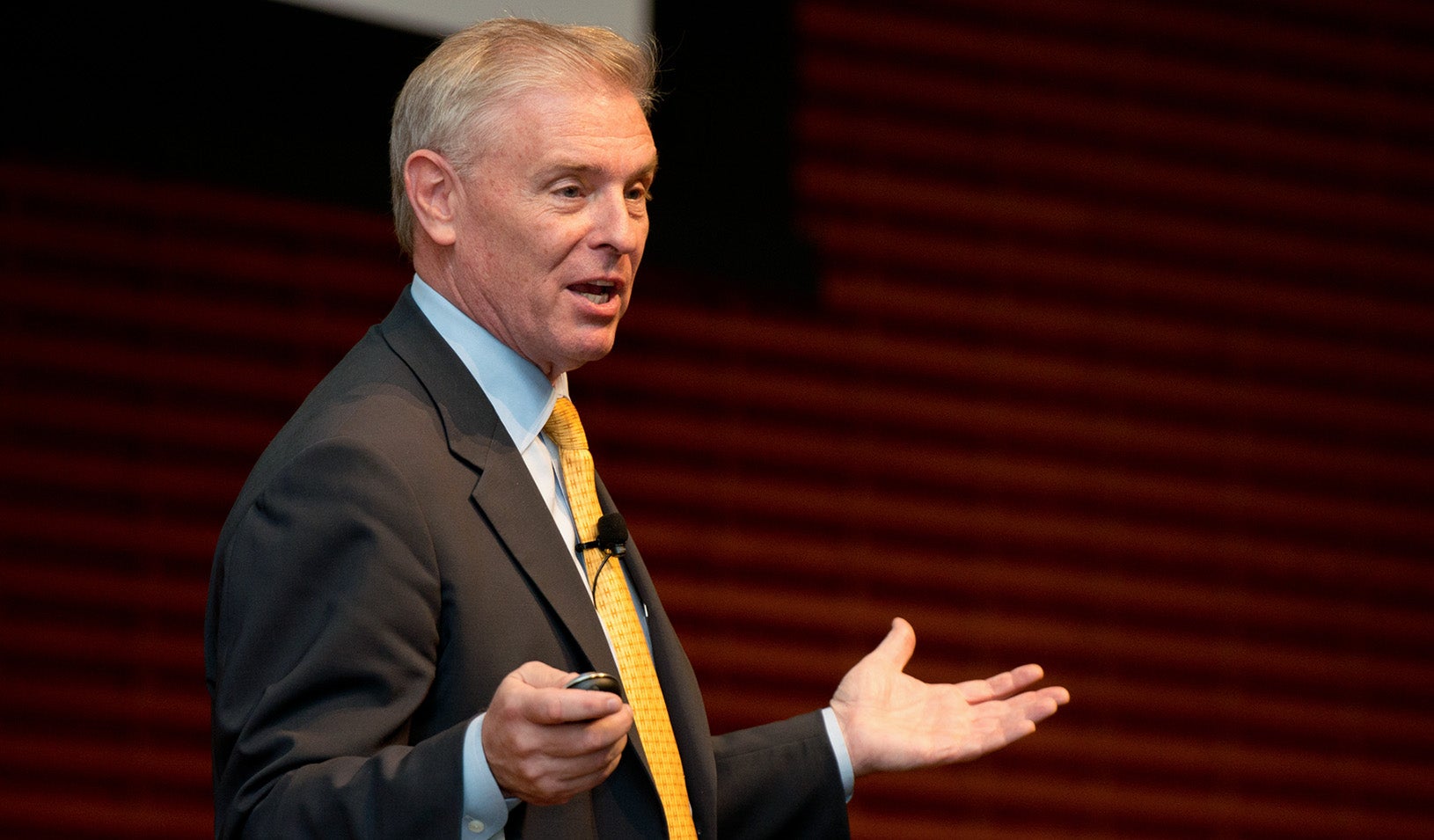October 06, 2022
In September, Stanford Graduate School of Business welcomed the 424 members of its newest MBA class, a dynamic group of individuals who are ready to make a positive impact on their organizations and the world.
“Every year, we seek out students who demonstrate enormous potential, an eagerness to contribute to the Stanford GSB community, and a commitment to make the world a better place,” says Kirsten Moss, assistant dean of MBA Admissions and Financial Aid. “The Class of 2024 delivered on all counts. We are so excited to welcome them to campus.”
Among the entering class are highly decorated military veterans, former White House policy advisors, film directors and musicians, world-class athletes, teachers, financial analysts and consultants, and social impact entrepreneurs who are tackling complex problems across the globe.
Some members of the class are enrolling straight out of their academic institutions while others have worked for nearly two decades building their careers. One-fifth of students with previous professional experience worked in investment management, private equity, or venture capital roles and another 20% worked in consulting. Fifteen percent of the class worked in the technology sector; 8% of the class previously worked in government, education, or the nonprofit sector; 4% are veterans; and 3% have worked in manufacturing. On average, incoming MBA students in the Class of 2024 have nearly five years of professional experience.
Class members studied at 162 undergraduate institutions in the U.S. or abroad; 13% have advanced degrees; and 12% are the first in their family to graduate from a four-year university or college. Before choosing the GSB, 24% of the class studied engineering, 21% majored in economics, 20% studied the social sciences, 19% were business majors, 9% studied math or science, and 6% studied arts or humanities.
The average GPA for the Class of 2024 was 3.76, based on U.S. schools that use a 4.0 grading system. The average GMAT score for the Class of 2024 was 737, with a range between 630 and 790. The average GRE Verbal score was 164, with a range between 149 and 170; the average GRE Quantitative score was 163, with a range between 150 and 170. The Stanford MBA program does not require a minimum GMAT or GRE score for admission and considers applicants with a wide range of scores on the GMAT, GRE, and TOEFL.
For the first time, more than half of the class’s U.S. citizens and permanent residents identify as people of color (51%), with the numbers of Black and Hispanic students reaching their highest levels in history under the program’s multi-identity reporting. Among the Class of 2024, 44% are women. Students come from 56 countries and speak 71 languages; 37% have a primary citizenship outside the United States per GME admissions reporting standards.
GSB Admissions Process
Stanford GSB’s application process is holistic and designed to meet students where they are in their personal and professional journeys. Students are selected for their intellectual curiosity, potential for impact, and commitment to community. Apart from those unifying attributes, however, their backgrounds and experiences reflect a world of diversity.
The MBA admissions team is committed to increasing representation among students and making the application process accessible to all interested applicants. To that end, the school has partnered with a number of organizations to increase awareness about the MBA program including QuestBridge and the Forté Foundation and also hosts events geared toward veterans, women, diverse leaders, and prospective students with families to help applicants envision themselves at the GSB.
The Building Opportunities for Leadership Diversity Fellows Fund, first launched in 2021, provides assistance to students who face financial hardship and are committed to the advancement of diversity, equity, and inclusion. The number of BOLD Fellows in the Class of 2024 increased by 25% since the program’s inaugural year. The Class of 2024 also includes veterans who are Yellow Ribbon Program beneficiaries.
“Our newest students have already reached significant milestones in their personal and professional lives,” Moss says. “The rich diversity of backgrounds, experiences, and perspectives will enable them to work together to tackle some of society’s most pressing challenges.”
For media inquiries, visit the Newsroom.



